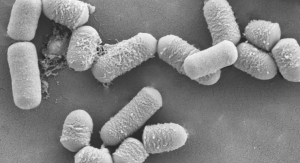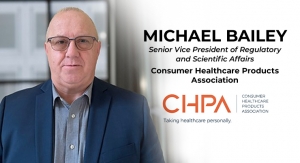Mike Montemarano, Associate Editor 02.18.21
The Institute for the Advancement of Food and Nutrition Sciences (IAFNS), a Washington, D.C.-based 501(C)(3) organization centered around supporting food safety and public health research, announced its establishment today.
The organization is made up of a number of leading food scientists, including those who were part of the organization when it was formerly known as the International Life Sciences Institute. IAFNS is building on its heritage with a focus on actionable science that promotes nutrition, food safety, and public health.
“This is the next step in a natural evolution that better communicates what we do and where we are headed,” IAFNS executive director Dr. Wendelyn Jones said. “We believe that collaboration and the inclusion of diverse perspectives from academia, industry, and government are the best ways to generate credible science that benefits the entire food and beverage ecosystem.”
With IAFANS’ operating model drawing from all of those involved in the nutrition space, it is uniquely positioned to drive, fund, and lead actionable research to elevate food safety and nutrition sciences, on topics such as bioactives, pathogens in food, or another of the range of scientific topics addressed by the organization. The organization is also committed to transparency and will fully disclose the funding, methodologies, and data of its research with the scientific community, and will publish all research results regardless of outcome.
“Public-private partnerships and collaborations are central to delivering science that matters,” Jones said. “Our approach to nutrition and food safety research will continue to advance science and evidence-based decision-making by ensuring the flow of relevant, useful information that positively impacts public health.”
IAFNS will pool funding from industry collaborators and advance science through the in-kind and financial contributions from public and private sector participants. A diversity of perspectives from all sectors in the committees and working groups will ensure that no one interest dominates, the organization said, as a balance of perspectives is the most appropriate way to minimize any potential conflict of interest or bias.
The organization is made up of a number of leading food scientists, including those who were part of the organization when it was formerly known as the International Life Sciences Institute. IAFNS is building on its heritage with a focus on actionable science that promotes nutrition, food safety, and public health.
“This is the next step in a natural evolution that better communicates what we do and where we are headed,” IAFNS executive director Dr. Wendelyn Jones said. “We believe that collaboration and the inclusion of diverse perspectives from academia, industry, and government are the best ways to generate credible science that benefits the entire food and beverage ecosystem.”
With IAFANS’ operating model drawing from all of those involved in the nutrition space, it is uniquely positioned to drive, fund, and lead actionable research to elevate food safety and nutrition sciences, on topics such as bioactives, pathogens in food, or another of the range of scientific topics addressed by the organization. The organization is also committed to transparency and will fully disclose the funding, methodologies, and data of its research with the scientific community, and will publish all research results regardless of outcome.
“Public-private partnerships and collaborations are central to delivering science that matters,” Jones said. “Our approach to nutrition and food safety research will continue to advance science and evidence-based decision-making by ensuring the flow of relevant, useful information that positively impacts public health.”
IAFNS will pool funding from industry collaborators and advance science through the in-kind and financial contributions from public and private sector participants. A diversity of perspectives from all sectors in the committees and working groups will ensure that no one interest dominates, the organization said, as a balance of perspectives is the most appropriate way to minimize any potential conflict of interest or bias.




























